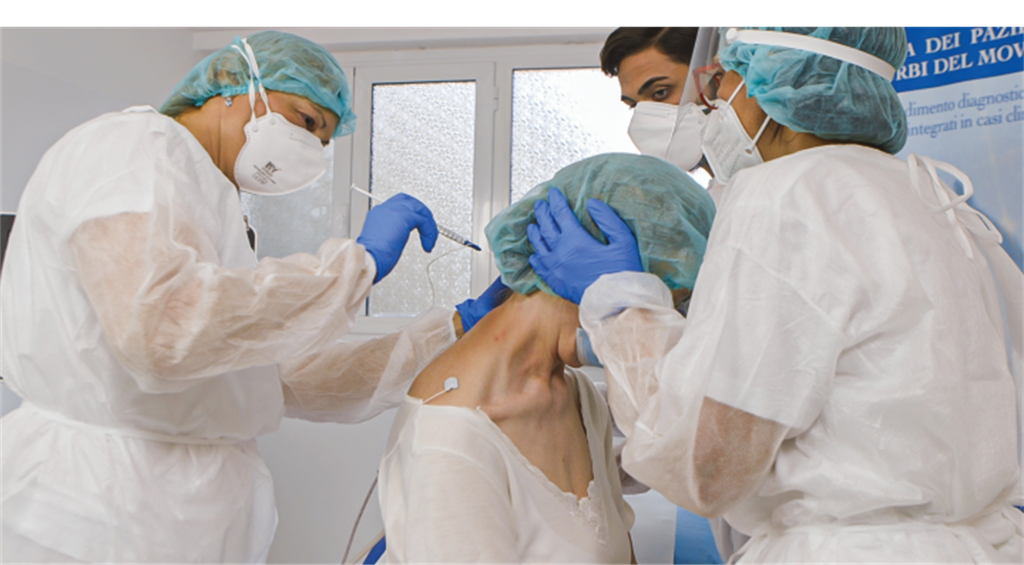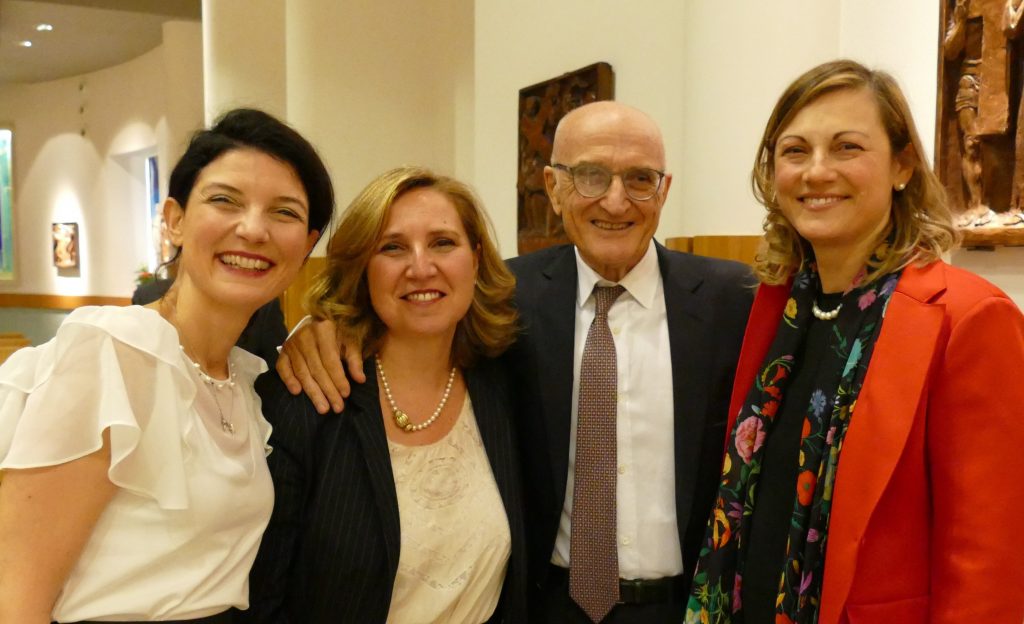
The Sol Diesis clinic for musicians, that has been running since 2004 within the IRCCS Don Gnocchi Foundation, is devoted to the prevention and treatment of neuromuscular diseases of professional and amateur musicians.
“The patient’s medical and musical history, and a careful observation of the musician when he performs- says doctor Rosa Maria Converti, head of the clinic- allow us to identify necessities and problems connected to playing that particular instrument, so as to put forward specific rehabilitation programs for every professional pathology and every type of musical instrument:
from physiatric examinations focusing on musicians’ professional pathologies, to global postural rehabilitation and examining the techniques for playing an instrument to the Feldenkrais method, to adapting and putting in place ergonomic aids and functional splints.
Examination of movements is carried out through the collaboration of SAFLO (Service for Motor Function Analysis). The Sol Diesis clinic works together with the Botulinum Toxin clinic, which focuses on treating movement disorders, for example focal dystonia in musicians- also known as “musician’s cramp “.
“During the Covid -19 pandemic- adds doctor Converti-the clinic has put in place two important remote services: teleconsultation and tele-rehabilitation. The former includes a physiatric examination, a posture evaluation and examining the technical gesture related to the musical instrument; the latter aimed to treating the musician’s specific disorders, e.g. postural changes, muscle-tendineous pathologies, focal dystonia…” . To receive more information or to make a reservation, send an email to: ambulatoriosoldiesis@dongnocchi.it

Maestro Salvatore Accardo with doctors form IRCCS Center, Milan, from left Maria Ramella, Rosa Maria Converti and Anna Castagna
The golden rules for musicians
set out by Milan’s ” Sol Diesis” clinic’s experts
1) Do warm- up exercises before playing. It improves your performance
2) Do a progressive technical warm-up with your instrument. A musician is comparable to an athlete, and as such must warm up before a training session
3) Pause for 5/10 minutes every 40/50 minutes in a practice session. Body and mind need to pause to learn
4) Do some stretching exercises when you’ve finished. It improves the qualities of the muscle and helps eliminate the waste products
5) Take a correct posture during practice. Maintaining the best possible alignment when playing your instrument, for example avoiding excessive rotations of the torso, prevents overloads and therefore pain
6) Make sure you’re practicing in suitable conditions; check lighting, seat height, the music stand’s position
7) If necessary, introduce ergonomic adaptations: devices such as support belts, chin rests, shoulder pads, and adapting the instrument (e.g. changing the keys) can prevent pain. It is important that the instrument is adapted to the musician, and not vice versa
8) Vary repertoire and music styles. Repeating the same passage again and again can cause overloads and thence pain
9) Avoid excessive increases in practice time. Sudden increases before a concert or an exam can led to overload and pain
10) Avoid staying for long without playing; keep up a minimum of practice with your instrument even during times of rest
11) Get to know your body better so as to loosen muscular tension; there are many non medical approaches available such as the Feldenkreis method, the Alexander method, Tai-chi, yoga…
12) Keep stress and anxiety under control; mindfulness techniques can be helpful
13) Beware of carrying heavy weights and doing strenuous physical exercise: they may cause overload and pain
14) In everyday life it is important to follow a healthy diet, have an adequate hydration, sleep well and exercise regularly; it’s better to avoid alcohol and smoking
15) Never play if it hurts. The motto “No pain, no gain” is not true! The onset of pain is a warning signal which should always be taken seriously
16) Should you experience pain which doesn’t go away consult a specialist (physiatrist, orthopaedic); self-medication is dangerous and it is essential to get a diagnosis before starting any kind of treatment.
Anna Castagna
